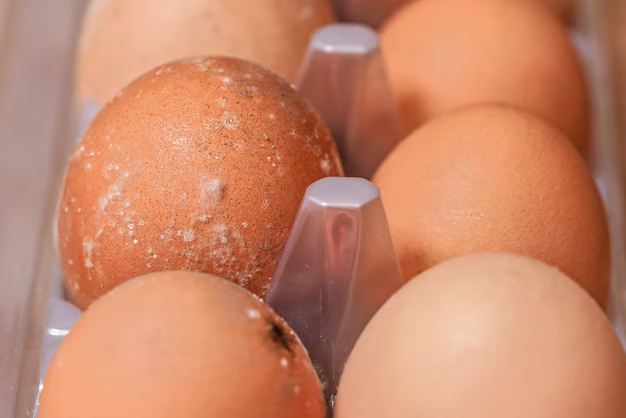How Fresh Are Your Eggs? Discover the Ideal Time to Keep Eggs in Your Refrigerator
Have you ever cracked an egg only to find an off-putting smell or a strange color? Fear not—understanding the shelf life of eggs and how to properly store them can help you avoid such unpleasant surprises. Eggs are a staple in many households, prized for their versatility and nutritional value. But there's one pressing question: How long can eggs be stored in the refrigerator before they go bad? Let's crack into the details and explore not only the lifespan of eggs but also tips to extend their freshness and ensure you’re always using them safely.
🥚 The Basics of Egg Storage: Why Refrigeration Matters
Before we dive into the specifics, it’s important to recognize why refrigeration is so critical for eggs. Eggs, especially in countries like the United States, are washed to prevent contamination and bacteria on the shell—most notably Salmonella. This washing process removes not only dirt but also the egg’s natural protective coating, making refrigeration important to help keep bacteria out.
How Long Can Eggs Last in the Fridge?
When it comes to refrigerated eggs, they have a longer shelf life than you might expect. Here’s a breakdown:
- Raw eggs in their shell: Typically, they can last three to five weeks past the date of purchase. Over time they gradually lose water content and thickening properties, affecting their texture especially in baking contexts.
- Raw egg whites: These can generally be stored in the fridge for up to four days.
- Raw yolks: Once separated from the whites, they should ideally be used within two days.
- Hard-boiled eggs: When stored correctly in their shell, they can last up to one week.
Expiration Date vs. Pack Date
Understanding dates on egg cartons can be tricky. There are typically two dates to be aware of:
- Sell-by or expiration date: This date indicates how long a store can display them for sale. Eggs can be safely consumed for a period after this date if they've been properly refrigerated.
- Julian date: This is often a three-digit number found on the carton that marks the day the eggs were packed, starting from January 1 as 001 to December 31 as 365. This is a useful guide to determine their freshness.
🧊 Extending the Freshness of Eggs: Practical Tips
Proper Storage Techniques
Storing eggs correctly can make a world of difference in extending their usability:
- Keep eggs in their original carton: This protects them more effectively than placing them in egg trays in the fridge door, as egg shells are porous and can absorb odors and flavors from other stored products. The carton helps prevent this transfer.
- Optimal fridge placement: For best results, store eggs on a middle shelf where the temperature is most consistently cool.
Freeze Your Eggs
For those looking to extend the life of their eggs well beyond a month: freezing is a fantastic option. You can't freeze eggs in their shell, but you can:
- Whisk raw eggs together and pour them into ice cube trays.
- Separate yolks from whites and freeze them individually. This is particularly handy for bakers.
Freezing eggs properly can keep them usable for up to a year!
🧐 How to Tell If Eggs Are Still Good to Use
Before using, you may wish to check the freshness of your eggs, especially if they've been stored for a while. Here are some tips:
The Water Test
Fill a bowl with water and gently place the egg inside:
- Sinks and lays flat: The egg is fresh.
- Stands upright: The egg is older but still good to use.
- Floats: It's time to discard the egg, as this indicates it has gone bad.
Visual and Sniff Test
- Cracked eggs: Check the contents for any unusual odors or colors. A foul smell or odd color means it's best to discard it.
- Albumen quality: Fresh eggs have thick, firm whites. Over time, the whites become more liquid and less cohesive.
🍳 Practical Considerations and Culinary Uses
Eggs may not last forever, but understanding their shelf life opens up possibilities for better meal planning. Maximize their usage with these pointers:
Meal Ideas
- Use older eggs in baking where changes in texture and taste may be less noticeable.
- Fresher eggs are ideal for poaching or making soft-boiled eggs, giving you perfect runny yolks.
Prepping and Storing Prepared Eggs
- Deviled eggs or other hard-cooked varieties are excellent for meal prepping. They remain good for a few days in the fridge.
- Egg-based sauces, like Hollandaise, should be consumed quickly as they spoil faster due to the added butter and milk.
Pasteurized Eggs
For recipes that require raw eggs, such as homemade mayonnaise or certain desserts, consider using pasteurized eggs. These have been heat-treated to kill harmful bacteria, making them a safer choice.
📌 Key Takeaways for Egg Storage
Egg Freshness Tips:
- Shelf life:
- Raw in shell: 3-5 weeks in the fridge
- Hard-boiled: Up to 1 week in shell
- Frozen eggs: Up to 1 year
- Storage techniques:
- Use original carton, avoid the fridge door.
- Opt for the bowl water test for freshness checking.
By following the above guidelines, you ensure your eggs remain fresh and safe to eat while minimizing food waste. Whether you're baking a cake or whipping up an omelet, knowing how long eggs can be stored and how to test their viability is key to enjoying them at their best.
Understanding the intricacies of egg storage not only empowers you with practical know-how but also ensures you get the most out of this kitchen staple. Now, go forth and enjoy your eggs—however you like them!

